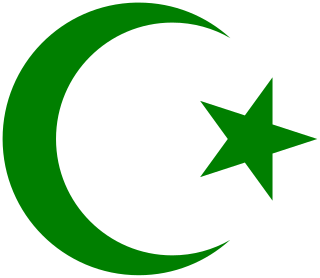
Hafizullah Amin was an Afghan communist politician during the Cold War. Amin was born in Paghman and educated at Kabul University, after which he started his career as a teacher. After a few years in that occupation, he went to the United States to study. He would visit the United States a second time before moving permanently to Afghanistan, and starting his career in radical politics. He ran as a candidate in the 1965 parliamentary election but failed to secure a seat. Amin was the only Khalqist elected to parliament in the 1969 parliamentary election, thus increasing his standing within the party. He was one of the leading organisers of the Saur Revolution which overthrew the government of Mohammad Daoud Khan.

Najibullah Ahmadzai ; February 1947 – 27 September 1996), commonly known as Najibullah or Dr. Najib, was the President of Afghanistan from 1987 until 1992, when the mujahideen took over Kabul. He had previously held different careers under the People's Democratic Party of Afghanistan (PDPA) and was a graduate of Kabul University. Following the Saur Revolution and the establishment of the Democratic Republic of Afghanistan, Najibullah was a low profile bureaucrat: he was sent into exile as Ambassador to Iran during Hafizullah Amin's rise to power. He returned to Afghanistan following the Soviet intervention which toppled Amin's rule and placed Babrak Karmal as head of state, party and government. During Karmal's rule, Najibullah became head of the KHAD, the Afghan equivalent of the Soviet KGB. He was a member of the Parcham faction led by Karmal.

The Democratic Republic of Afghanistan, renamed in 1987 to the Republic of Afghanistan, commonly known as Afghanistan, existed from 1978 to 1992, during which time the socialist People's Democratic Party of Afghanistan (PDPA) ruled Afghanistan.

The politics of Afghanistan consists of the council of ministers, provincial governors and the national assembly, with a president serving as the head of state and commander-in-chief of the Afghan Armed Forces. The nation is currently led by President Ashraf Ghani who is backed by two vice presidents, Abdul Rashid Dostum and Sarwar Danish. In the last decade the politics of Afghanistan have been influenced by NATO countries, particularly the United States, in an effort to stabilise and democratise the country. In 2004, the nation's new constitution was adopted and an executive president was elected. The following year a general election to choose parliamentarians took place.
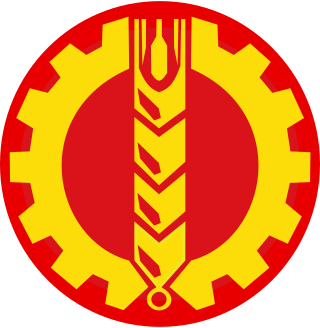
The People's Democratic Party of Afghanistan was a political party established on 1 January 1965. While a minority, the party helped former prime minister of Afghanistan, Mohammed Daoud Khan, to overthrow King Mohammed Zahir Shah in 1973, and establish the Republic of Afghanistan. Daoud would eventually become a strong opponent of the party, firing PDPA politicians from high-ranking jobs in the government cabinet. This would lead to uneasy relations with the Soviet Union.

Nur Muhammad Taraki was an Afghan communist statesman during the Cold War who served as President of Afghanistan from 1978 to 1979. Taraki was born near Kabul and educated at Kabul University, after which he started his political career as a journalist. He later became one of the founding members of the People's Democratic Party of Afghanistan (PDPA) and was elected as the party's general secretary at its first congress. He ran as a candidate in the 1965 Afghan parliamentary election but failed to secure himself a seat. In 1966 he published the first issue of Khalq, a party newspaper, but it was closed down shortly afterwards by the government. He led the Khalq wing of the PDPA. In 1978 Taraki, along with Hafizullah Amin and Babrak Karmal initiated the Saur Revolution and established the Democratic Republic of Afghanistan.
Sultan Ali Keshtmand, sometimes transliterated Kishtmand, born May 22, 1935, in Kabul, was an Afghan politician. He served twice as Chairman of the Council of Ministers during the 1980s, from 1981 to 1988 and from 1989 to 1990 in the Democratic Republic of Afghanistan.

Khalq was a faction of the People's Democratic Party of Afghanistan (PDPA). Its historical leaders were Presidents Nur Muhammad Taraki and Hafizullah Amin. It was also the name of the leftist newspaper produced by the same movement. It was supported by the USSR and was formed in 1965 when the PDPA was born. The Khalqist wing of the party was made up primarily of Pashtuns from non-elite classes. However, their Marxism was often a vehicle for tribal resentments. Bitter resentment between the Khalq and Parcham factions eventually led to the failure of the Democratic Republic of Afghanistan government that was formed as a result of the Saur Revolution in 1978. It was also responsible for the radical reforms and brutal dissident crackdowns that encouraged the rebellion of the religious segments present in the Afghan society, which led to the creation of the Mujahideen and, eventually, to the Soviet military intervention in December 1979.

Fazal Haq Khaliqyar was an Afghan politician, who briefly served as the Chairman of the Council of Ministers of the Republic of Afghanistan.

Colonel Abdul Qadir was born in Herat and trained as a pilot in the Soviet Union. In 1973 he also participated in the coup d'etat that created the Republic of Afghanistan under the Presidency of Mohammad Daoud Khan. In 1978 he was the leader of the Afghan Air Force squadrons that attacked the Radio-TV station during the Saur Revolution. He served as the leader of the country for three days when the People's Democratic Party of Afghanistan (PDPA) took power and declared the foundation of the Democratic Republic of Afghanistan.

Ghulam Mohammad Farhad (1901–1984) was an Afghan engineer and Pashtun nationalist. He lived in Germany on a royal scholarship from 1921 to 1928, training as an electrician at the Technical University of Munich. During his studies in Germany, he came in contact with Nazi policy and became fascinated by some aspects of it. After he returned to Afghanistan, Farhad was appointed to several electricity-related posts in the government, finally serving as president of the Kabul Electric Company from 1939 to 1966. He traveled to Germany in 1947 to acquire equipment; he was often accused of favoring German-manufactured products. From 1948 to 1954, he was mayor of Kabul. He notably installed the city's first traffic lights and declared a switch to right-hand driving. In 1966, Farhad created the Afghan Social Democratic Party on the bases of Pashtun nationalism, social democracy, and anticommunism. He was elected to Parliament, representing the sixth district of Kabul, in 1968, but resigned his seat in 1970. He was later a political prisoner of the PDPA/Khalq government from 1979 to 1980, when he was freed in a general amnesty.
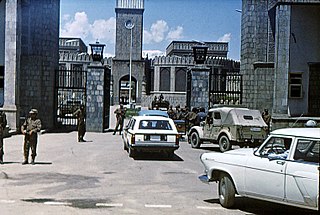
The Saur Revolution, also called the April Revolution or April Coup, was a coup d'état led by the People's Democratic Party of Afghanistan (PDPA) against the rule of Afghan President Mohammed Daoud Khan on 27–28 April 1978. Daoud Khan and most of his family were killed at the presidential palace. The revolution resulted in the creation of a government with Nur Muhammad Taraki as President, and was the precursor to the 1979 intervention by the Soviets and the 1979–1989 Soviet–Afghan War against the Mujahideen.
The following lists events that happened during 1987 in Afghanistan.
Ghulam Dastagir Panjsheri born in 1933 in Panjshir, Afghanistan. Panjsheri was usually identified as a Khalq by fellow Afghan politicians, while outside observers said he was creating his own PDPA group under the name Gruhi Kar.

The Revolutionary Council of the People's Democratic Party of Afghanistan (PDPA) ruled the Democratic Republic of Afghanistan from 1978 until its collapse in 1992. The council was the supreme state power under the communist regime and was a carbon copy of the Supreme Soviet. The point with the council was to convene on a semiannual basis to approve decisions made by the presidium.
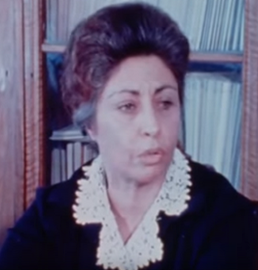
Anahita Ratebzad was an Afghan socialist and Marxist politician and a member of the People's Democratic Party of Afghanistan (PDPA) and the Revolutionary Council under the leadership of Babrak Karmal. Ratebzad was Afghanistan's deputy head of state from 1980 to 1986.

The Republic of Afghanistan was the name of the first republic of Afghanistan, created in 1973 after Mohammed Daoud Khan deposed his cousin, King Mohammad Zahir Shah, in a non-violent coup. Daoud was known for his progressive politics and attempts to modernise the country with help from both the Soviet Union and the United States, among others.

From August 29 to September 11, 1969 Afghanistan held its second free parliamentary election since the introduction of the constitution in 1964, with 2,030 candidates standing for the 216 seats of the House of the People and for one-third of the House of Elders. The single-member plurality electoral system was used.
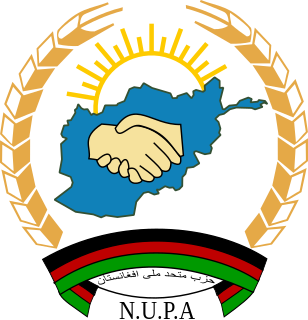
The National United Party of Afghanistan is a major left-wing political party in Afghanistan.

